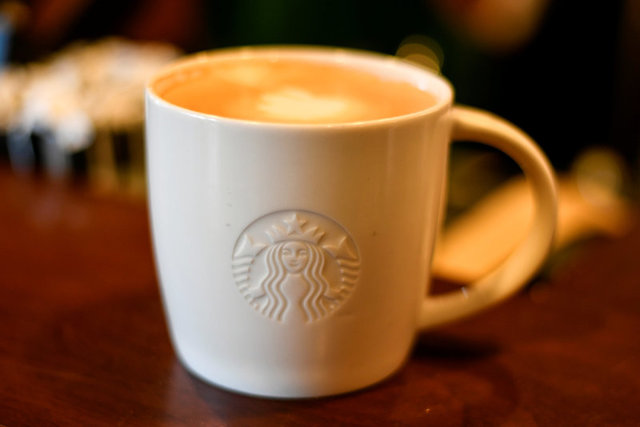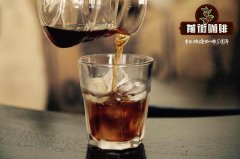Starbucks won the Coffee Cancer case! California ruled that coffee products do not need to post cancer warnings
Professional coffee knowledge exchange more coffee bean information please follow the coffee workshop (Wechat official account cafe_style)
According to news from Beijing time on the 4th, California officially ruled that coffee does not pose a serious cancer risk. The state's regulator approved a rule that coffee products sold in California do not have to bear cancer warning labels.

The incident dates back to 2010, when the toxic substances Education and Research Committee, a non-profit organization in the United States, filed a lawsuit in court, accusing 90 coffee practitioners, including Starbucks, of violating California Proposition 65. Consumers were not warned that coffee products contained chemicals that could cause cancer. The group said coffee retailers and others could not prove to the judge that they would not produce acrylamide when roasting coffee beans at high temperatures, posing a risk to consumers.
The question is, what is acrylamide? This is the product of Mena reaction between amino acids and reducing sugars in food during heating at more than 120 degrees Celsius. it has mutagenicity in vivo and in vitro tests. it can cause gene mutations and chromosome abnormalities in mammalian somatic and germ cells. Coffee, French fries, bread and potato chips and other foods made at a temperature of more than 120 degrees Celsius naturally produce acrylamide, and acrylamide is also found in cigarette smoke.
In 1994, the International Agency for Research on Cancer (IARC) rated acrylamide as "potentially carcinogenic to humans"-class 2 carcinogens (2A), that is, human carcinogens. In 2016, however, the World Health Organization's International Agency for Research on Cancer removed coffee from the list of "possible carcinogens".
Perhaps many people still remember the article "Starbucks Coffee causes Cancer" published on the social platform at the end of March last year. At that time, many domestic platforms quoted US media reports on the Los Angeles High Court's ruling that Starbucks and other coffee must be marked with a cancer warning in California, which was misinterpreted, making the public think that "coffee is carcinogenic." William Murray, president of the National Coffee Association, commented on the latest ruling at that time, "after repeated verification, coffee has long been proved to be a healthy drink." This lawsuit will not only mislead consumers, but also do nothing to improve public health. "
Last year, some coffee retailers settled the lawsuit and agreed to post warning signs in their coffee shops. But the protracted public interest lawsuit was not over, when the court said the third stage of the trial would revolve around how much compensation coffee practitioners should pay to "victims", with a reference figure of $2500 per person, given that California has a population of 40 million. This is an unrealistic astronomical figure.
Until June 4 this year, the California Office of Environmental Health Hazard Assessment concluded that coffee did not have a serious cancer risk, noting that the World Health Organization had evaluated more than 1000 studies and did not find enough evidence to prove that coffee causes cancer. 90 coffee companies, including Starbucks, finally turned around, and California officially ruled that coffee did not pose a "serious" cancer risk, and then withdrew the warning sign.
END
Important Notice :
前街咖啡 FrontStreet Coffee has moved to new addredd:
FrontStreet Coffee Address: 315,Donghua East Road,GuangZhou
Tel:020 38364473
- Prev

Burundian Coffee production area Burundian Heart of Africa whole Water washing method of bourbon seed
Professional coffee knowledge exchange more coffee bean information please follow the coffee workshop (Wechat official account cafe_style) the coffee in Burundi mainly comes from the following five major producing areas, mainly with the famous coffee producing areas such as Kayanza, Ngozi, Mumirwa, Buyenzi, Kirimiro and so on. Burundi the Heart of Africa Coffee production patterns in Burundi are similar to those in Ethiopia.
- Next

Preparation should be made before opening a coffee shop _ experience sharing of opening a coffee shop
Professional coffee knowledge exchange more coffee bean information Please follow the coffee workshop (Wechat official account cafe_style) A few years ago, I often received "Bear Da, I want to open a coffee shop." In the past few years, I have seldom walked around in cafes, and while my popularity has declined, there have also been fewer such questions. Usually when I receive this kind of question, I have a high chance of calling back the ticket directly.
Related
- What documents do you need to go through to open a coffee shop? coffee shop coffee shop certificate processing process
- How to purchase Coffee beans in small Cafe how to choose a suitable supplier for domestic Coffee supply Company
- How to drink Starbucks Fragrance White Coffee? how to make Australian White Coffee? what Italian coffee beans are recommended?
- The Story of Flora Coffee: the name of Flora Coffee Bean and the implication of the Flowers on Florna Coffee
- How much does a cup of coffee cost? How much is the profit of a cup of coffee? What is the profit of the coffee shop in a year?
- Yunnan small Coffee, known as "fragrant Coffee", introduces the characteristics of Alpine Arabica Coffee producing areas in Yunnan, China
- 2023 latest Starbucks full menu price list how much is a cup of Starbucks coffee what is better to drink the most popular hot and cold drinks recommended
- Starbucks different kinds of Coffee Price list Starbucks menu 2023 Top Ten Best drinks in Starbucks
- Starbucks Spring praise Comprehensive matching Coffee Bean theme Story Packaging implication and taste description
- The cost of a cup of coffee latte American coffee cost price and selling price

